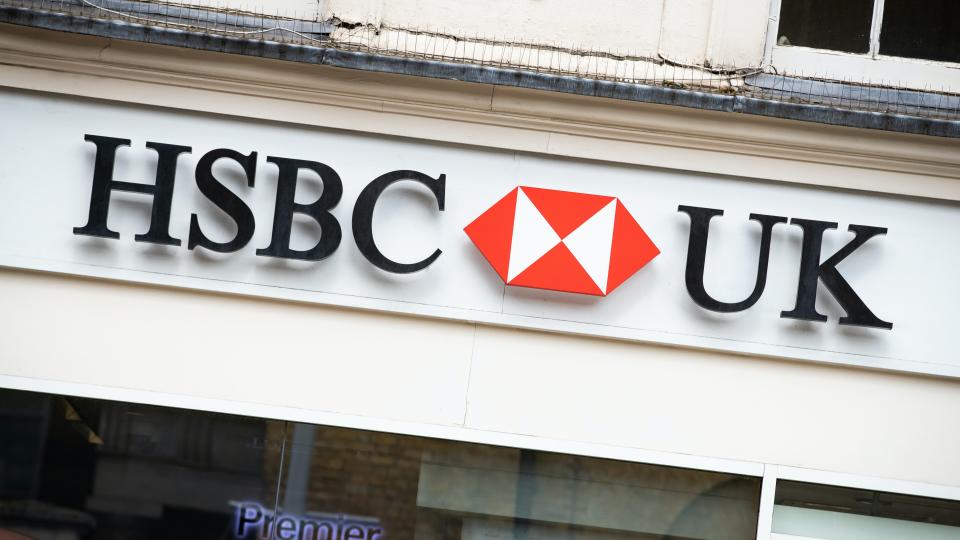Low interest rates ‘challenge’ banking sector, says HSBC

One of the world’s biggest lenders has warned that record-low interest rates around the world could challenge the banking sector long term, as it set out to re-think its strategy.
HSBC said its revenue had dropped by 11% to 11.9 billion US dollars (£9.2 billion) in the third quarter of the year, compared with the same period in 2019.
The reduction came largely as a result of lower net interest income, as interest rates were slashed by central banks around the world.
Our third-quarter results published today show the progress we’re making in adapting our business model to the low interest-rate environment. See the three strategic areas where we’re intensifying our focus: https://t.co/kZWA98FliZ pic.twitter.com/pdpg6L03No
— HSBC (@HSBC) October 27, 2020
Even before the Covid-19 crisis, the interest rates set by central banks had not recovered from the shock of the financial crisis more than a decade ago.
Before the crash, in July 2007, the Bank of England’s base rate was 5.75%. Less than two years later, after several cuts, the rate was set at 0.5%, where it stayed until 2016.
It meant that, when Covid-19 hit, rates could not drop much lower.
In March, the Bank reduced its base rate to 0.1%, and has not ruled out rates turning negative, as they have elsewhere in the world.
“This raises a number of risks and concerns, such as the readiness of our systems and processes to accommodate zero or negative rates, the resulting impacts on customers, regulatory constraints and the financial implications given the significant impact that prolonged low interest rates are likely to have on our net interest income,” HSBC said on Tuesday.
It added that these, and other factors “may challenge the long-term profitability of the banking sector, including HSBC, and will be considered as part of the group’s transformation programme.”
That programme includes steering away from net interest income as its main source of income, and focusing more on making money through fees, said Fiona Cincotta, an analyst at City Index.
“This marks a huge shift in strategy but one that make absolute sense given the rock-bottom interest rates that have dominated the banking scene for years and are look set to stay for the foreseeable future,” she said.
However, HSBC’s third-quarter results were not all doom and gloom for investors.
The bank now expects that its losses will be at the lower end of the 8 billion to 13 billion US dollars (£6 billion to £10 billion) that it had previously expected.
Meanwhile, profit before tax dropped by 36% to 3.1 billion dollars (£2.4 billion), but nevertheless ahead of the 2.1 billion dollars (£1.6 billion) that had been forecast.
Chief executive Noel Quinn said: “These were promising results against a backdrop of the continuing impacts of Covid-19 on the global economy.
“I’m pleased with the significantly lower credit losses in the quarter, and we are moving at pace to adapt our business model to a protracted low interest rate environment.
“We are accelerating the transformation of the group, moving our focus from interest-rate sensitive business lines towards fee-generating businesses, and further reducing our operating costs.”
Separately, the British arm of Spanish bank Santander has also seen a tough quarter as its pre-tax profit dropped 59% to £319 million.
The bank said that it had taken credit impairment charges of £547 million, largely as a result of Covid-19.
Globally the bank has set aside around 2.5 billion euros (£2.3 billion) to prepare for potential losses.
Michael Hewson at CMC Markets said that Santander’s move was “notable for the fact that they appear to be one of the few European banks who are gearing up for huge loan losses in the coming months due to the pandemic.
“The bank has set aside a total of 9.56 billion euros in respect of bad loans so far in the year to date. While the rest of the big banks in the European banking sector appear to have set aside less than 20 billion euros between them.
“This suggests astonishing complacency if a recent report by McKinsey and Co in August of up to 2,200 SMEs is in any way accurate. According to them one in five companies in Italy and France anticipate filing for bankruptcy within six months, a situation which could well be catastrophic for the region.”

 Yahoo Finance
Yahoo Finance 